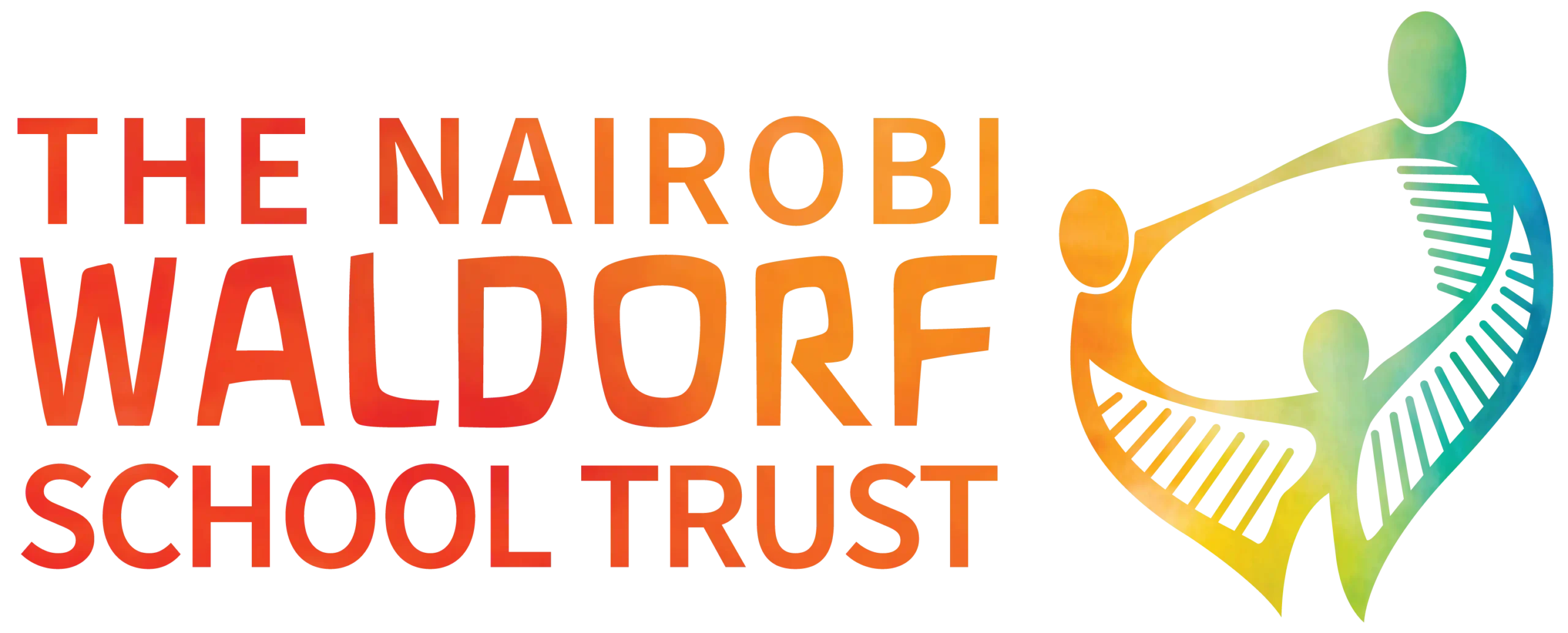Early Childhood at Nairobi Waldorf School Trust
At NWST, our Early Childhood program creates a warm, home-like environment for children aged 18 months to 6 years. Rooted in Waldorf education, we nurture curiosity, creativity, and a love for life through meaningful daily rhythms like baking, painting, and play.
Crafts, handwork, games, and regular outdoor play encourage the healthy growth of the child’s body. Toys, art materials, and classroom aesthetics emphasize natural, simple materials, encouraging the child’s imagination. Through play, each child learns a broad range of cognitive, social, and linguistic skills.
Our mixed-age classrooms foster collaboration, while seasonal festivals and community events enrich each child’s experience. Through free play and hands-on activities, children develop essential motor, social, and emotional skills, preparing them for lifelong learning.
With flexible schedules and an extended day option, we provide the support families need while ensuring every child thrives in a joyful, nurturing space.
Toddlers (18 Months to 3 Years)
Our toddler program focuses on nurturing the youngest learners in a warm, safe, and stimulating environment. Through a carefully designed rhythm of daily activities, we encourage social interaction, sensory exploration, and foundational motor skill development, all guided by the principles of Waldorf education. Children report from 8:30 a.m. to 1:00 p.m., and parents have the flexibility to choose a schedule that suits their needs—bringing their children for two or three days a week, or the whole week if they prefer.
Daily Rhythm
Each day follows a consistent structure that helps toddlers feel secure and engaged. Activities include:
- Morning Ring: Songs, poems, and rhymes that enhance language skills and introduce rhythm and repetition.
- Storytime: Engaging tales such as “The Little Shell” and “The Tiny Caterpillar,” which ignite curiosity and imagination.
- Creative Play: Opportunities for free play with toys, blocks, and natural materials, fostering creativity and social interaction.
- Artistic Exploration: Painting, drawing, and modeling activities help refine fine motor skills while encouraging self-expression.
Seasonal Themes and Activities
Our curriculum is woven around seasonal themes, introducing children to the natural world in an age-appropriate way. For instance:
- Nature Exploration: Children experience the weather and learn about their environment through sensory activities.
- Festivals of Light: Celebrating the season with songs, crafts, and storytelling, fostering reverence and joy.
Developmental Goals
The toddler program supports key developmental milestones:
- Socialization and collaborative play.
- Language and listening skill development.
- Building large motor skills and foundational senses through movement and rhythm.
- Encouraging creativity and individuality.
Materials and Resources
We use simple, natural materials such as crayons, paint, play dough, and wooden blocks to encourage sensory exploration and creativity. Waldorf-inspired manuals or guidelines and teacher-created stories enrich the program with age-appropriate activities and meaningful experiences.
Playgroup (Ages 3–4)
The Playgroup program at Nairobi Waldorf School introduces children to a vibrant and imaginative environment that fosters a love for learning and discovery. Our activities are thoughtfully designed to meet the developmental needs of this age group, encouraging creativity, fine motor skills, and social-emotional growth. Children attend school from 8:00 AM to 1:00 PM, providing ample time for engaging in a variety of enriching activities that nurture their growth and development.
Daily Activities and Themes
Each day follows a balanced rhythm, allowing children to explore and learn through seasonal themes and hands-on activities:
- Morning Ring: Songs and movement that enhance language development, body coordination, and spatial awareness. Themes such as Beach, Flowers, and Rainy/Insects connect children with nature and its seasons.
- Storytelling: Engaging tales like The Little Zebra, Thumbelina, and The Magic Cooking Pot spark awe, wonder, and imagination while building listening and concentration skills.
- Artistic Expression: Activities include painting, drawing, wool crafts, paper crafts, and modeling. These develop eye-hand coordination, fine motor skills, and a sense of beauty and accomplishment.
- Gardening: Practical activities such as planting and nurturing gardens encourage responsibility, patience, and an appreciation for nature.
Core Objectives
The Playgroup program supports children in developing key foundational skills:
- Enhancing creativity and imagination through storytelling and art.
- Strengthening language skills through songs, rhymes, and thematic activities.
- Building fine motor skills and eye-hand coordination with crafts and practical tasks.
- Encouraging reverence and social skills through seasonal celebrations and group activities.
Kindergarten (Ages 4–6)
In our Kindergarten program, children are guided through a nurturing and rhythmic environment where imagination, creativity, and a love for learning flourish. Designed to meet the developmental needs of children aged 4–6, the curriculum blends play-based learning with hands-on activities that lay the foundation for academic and social-emotional growth.
Daily Rhythm and Seasonal Themes
The Kindergarten program follows a predictable and comforting rhythm that allows children to thrive. Each day features a mix of:
- Morning Ring: Songs, verses, and movement activities enhance language development, body coordination, and spatial awareness. Seasonal themes like Beach, Flowers, and Sharing & Light help children connect with nature and the world around them.
- Storytelling: Captivating tales such as The Little Zebra, Thumbelina, and Kipury inspire wonder, creativity, and listening skills. These stories provide a moment of calmness while fostering imagination and language growth.
- Artistic Expression: Painting, drawing, and crafts such as wool work, paper crafts, and modeling encourage fine motor skills, eye-hand coordination, and individual creativity.
- Gardening: Practical activities like planting and nurturing gardens instill a sense of responsibility and appreciation for the natural world.
Core Objectives
Through the curriculum, children develop essential skills and values:
- Language Development: Enhanced through songs, movement, and engaging storytelling.
- Motor Skills: Strengthened through creative activities like drawing, painting, and crafts.
- Social and Emotional Growth: Fostered by themes of sharing, caring, and community building.
- Imagination and Creativity: Nurtured by stories and free play, laying a strong foundation for problem-solving and critical thinking.
